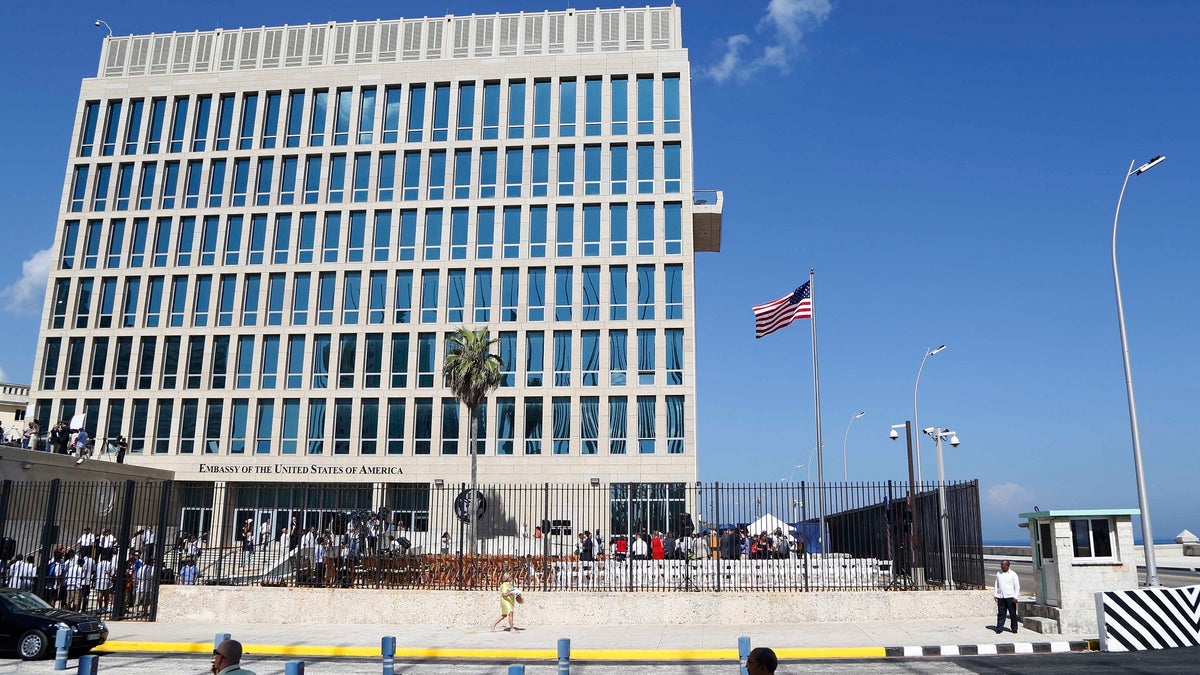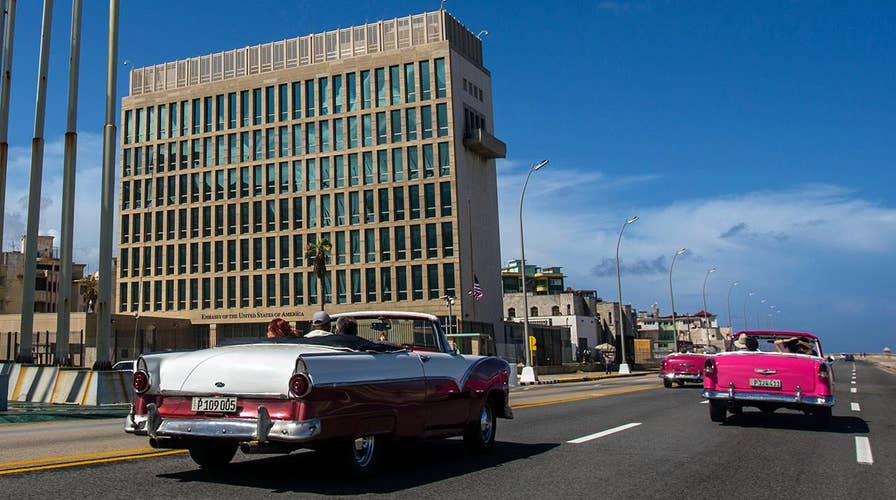Report: Diplomats working in Cuba suffer brain abnormalities
Dr. Manny Alvarez provides insight on 'America's News HQ.'
State Department officials told Congress on Tuesday they still don’t know what caused U.S. diplomatic personnel to experience vertigo and other neurological symptoms while stationed in Cuba, while saying a viral attack is now being considered.
Officials also were unable to provide assurances they can prevent future incidents.
“I don’t think we say categorically that they can be safer from this,” State Department security official Todd Brown told the Senate Foreign Relations Committee during a morning hearing.
He said investigators are considering the possibility that the 24 Americans in question were sickened by a viral attack -- following the release earlier this week of an FBI report finding no evidence that sound waves caused the concussion-like symptoms, which also caused nausea and vision problems.
He told Florida GOP Sen. Marco Rubio that the State Department has no way of assuring the safety of members of the U.S. diplomatic corps in Cuba.

Shown here is the US Embassy in Cuba. The State Department is still investigating mysterious illnesses affecting US personnel. (AP)
Dr. Charles Rosenfarb, director of State’s Bureau of Medical Services, said the department is trying to make people aware of the risks and urging them to “move away” from any unusual feelings or sensations. However, the officials acknowledged that such efforts are merely reactive, not proactive.
The illnesses occurred in several periods in 2016, starting as early as November.
The U.S. last year reportedly asked about 60 percent of its staff and family to leave the U.S. Embassy in Havana.
Secretary of State Rex Tillerson said in an Associated Press interview released earlier this week that the United States would be "putting people intentionally in harm's way" if it sent diplomats back to Cuba.
"I'd be intentionally putting them back in harm's way,” he said in the Jan. 5. Interview. “Why in the world would I do that when I have no means whatsoever to protect them?"
He spoke amid the new FBI report that cast doubt on the initial theory that Americans there were hit by "sonic attacks."
By law, Tillerson must form an "accountability review board" after any serious injury to diplomats overseas. One highly publicized example was after four Americans were killed in Benghazi, Libya, in 2012.
Tillerson has now decided on convene such a review board, State Department officials said Tuesday, when questioned by Rubio about the issue.
The interim report from the bureau's Operational Technology Division -- following months of investigation and four FBI trips to Havana -- reportedly states the probe has uncovered no evidence that sound waves could have damaged the Americans' health.
Still, the State Department officials made clear Tuesday on Capitol Hill that investigations are ongoing. U.S. officials say they have no conclusive evidence that Cuba’s Castro regime is behind the incidents but they remain skeptical.
“It unfortunate that we have not seen more public outcry … against the Cuban government for whatever scope of ownership it has over these attacks,” said New Jersey Democratic Sen. Bob Menendez, a member of the Senate committee. “The Castro regime … has no regard for individual human rights.”
Washington has never claimed Cuba perpetrated the attacks but has insisted the island's communist-run government must know who did.
"I still believe that the Cuban government, someone within the Cuban government can bring this to an end," Tillerson said in the interview.
Rubio, a vocal critic of Cuba's government, declared on Twitter it was a "documented FACT" that U.S. personnel were "victims of some sort of sophisticated attack" and U.S. officials briefed on the matter know that "full well."
However, Arizona GOP Sen. Jeff Flake, also a member of the Senate committee, said over the weekend that high-ranking Cuban officials told him that the FBI has found no evidence of attacks and that classified U.S. briefings left him with no reason to doubt Cuba's account.
In October, the AP published a recording of the high-pitched chirping sound some diplomats heard. Officials cautioned then they weren't sure whether the sound itself harmed Americans, or was perhaps the byproduct of something else that did.
Last month, the AP reported doctors discovered brain abnormalities in patients who were being treated after returning from Cuba. But since the patients hadn't been tested before working in Cuba, outside experts raised questions.
In addition to pulling out all but "essential personnel," the Trump administration last year expelled 15 Cuban diplomats and warned Americans to avoid the island.
The Associated Press contributed to this report.













































